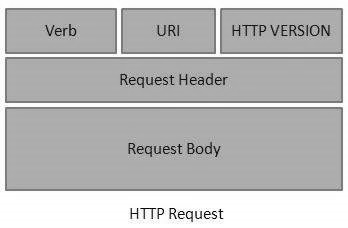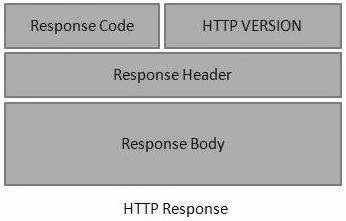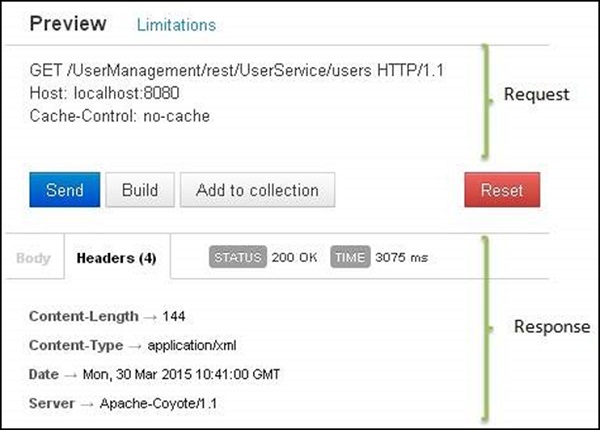标签:解释 out lis with 理解 review key image ges
在Rest的架构之内,讲一切内容都是为资源。每一个资源都被定义为一个URI。
格式: <protocol>://<service-name>/<ResourceType>/<ResourceID>
除此之外,URI的另一个关键部分为“VERB“, 一直对应我们也称他们为方法,通常有四种形式 -- GET/POST/PUT/UPDATE
关于资源的表述,Rest有多种形式的表述方式,其中以XML和JSON最为常用。
Rest 采用HTTP协议作为client和server之间的传输媒介。 client 通过发送 HTTP Request 到 Server;Server 发送 HTTP Response 到 client。
为了方便理解,通过图文并茂的方式来解释一下 HTTP Request/Response.
以下部分摘自: https://www.tutorialspoint.com/restful/restful_messages.htm

A HTTP Request has five major parts:
Verb- Indicate HTTP methods such as GET, POST, DELETE, PUT etc.
URI- Uniform Resource Identifier (URI) to identify the resource on server
HTTP Version- Indicate HTTP version, for example HTTP v1.1 .
Request Header- Contains metadata for the HTTP Request message as key-value pairs. For example, client ( or browser) type, format supported by client, format of message body, cache settings etc.
Request Body- Message content or Resource representation.

A HTTP Response has four major parts:
Status/Response Code- Indicate Server status for the requested resource. For example 404 means resource not found and 200 means response is ok.
HTTP Version- Indicate HTTP version, for example HTTP v1.1 .
Response Header- Contains metadata for the HTTP Response message as key-value pairs. For example, content length, content type, response date, server type etc.
Response Body- Response message content or Resource representation.
As we have explained in RESTful Web Services - First Application tutorial, Let‘s put http://localhost:8080/UserManagement/rest/UserService/users in POSTMAN with GET request. If you click on Preview button residing near send button of Postman and then click on Send button, you may see the following output.

Here you can see, the browser sent a GET request and received a response body as XML.
标签:解释 out lis with 理解 review key image ges
原文地址:http://www.cnblogs.com/atuotuo/p/6286267.html